Keynote Speaker
TBA
M.S.W. Speaker
TBA
Ph.D. Speaker
TBA
Welcome
Smith College School for Social Work Dean
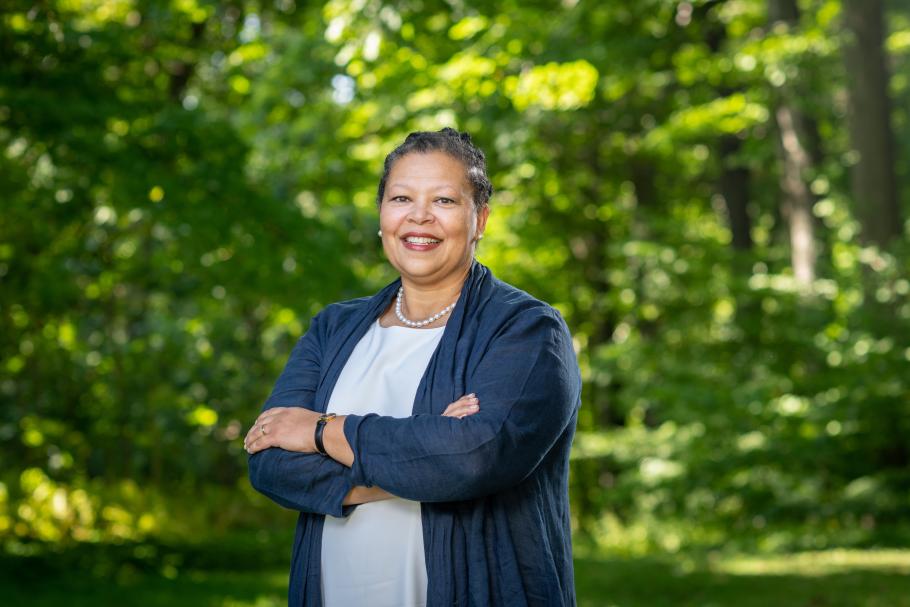
Conferring of Degrees
Sarah Willie-LeBreton
Smith College President
Sarah Willie-LeBreton (she/her) is the 12th president of Smith College. She earned a bachelor of arts degree from Haverford College in 1986, an M.A. (1988) and Ph.D. (1995) from Northwestern University, all in sociology. After having taught at Colby College (1991–1995) and Bard College (1995–1997) in tenure-track appointments, she was tenured at Swarthmore where she served as coordinator of the Black Studies Program and chair of the Department of Sociology and Anthropology for a total of seventeen years. She was appointed as provost and dean of the faculty at Swarthmore in 2018 and served in that role until 2023.
An accomplished administrator, scholar and sociologist who studies social inequality and race and ethnicity, Willie-LeBreton is known for her commitment to the liberal arts, strengthening community and energizing the work of equity and inclusion. She is the author of several dozen articles, essays, reviews and op-ed columns. Her first book, Acting Black: College, Identity and the Performance of Race, examines how the experiences of Black college alumni of a predominantly white institution (PWI) were distinct from those who attended a comparative HBCU from the waning days of the civil rights movement through the county’s political turn to the right under the Reagan presidency. Her second book, Transforming the Academy: Faculty Perspectives on Diversity and Pedagogy, is a collection of essays to which she has contributed and which she edited. It focuses on the challenges faced by faculty who were previously underrepresented on campuses, including people of color, queer people, neurodivergent people and people who immigrated to the U.S. It explores their experiences as they become participants in dominant spaces within the American Academy.
Willie-LeBreton considers herself an applied sociologist, and she has worked with a broad range of groups and organizations to understand social dynamics and develop strategies to move toward organizational self-awareness, transformation, compassion and inclusivity. She is a member of and has been active in the Eastern Sociological Society, Sociologists for Women in Society, the Association of Black Sociologists and the American Sociological Association (ASA). For several years, she reviewed sociology and affiliated departments as a member of the ASA’s Departmental Resources Group. Her board service has included the Executive Office and Budget of the ASA, Pendle Hill Quaker Center, Haverford College, Benchmark School, the Shalem Institute for Spiritual Formation and she sits on the advisory board of IIG (Integrated Impact Group) which offers consulting for the educational sector.
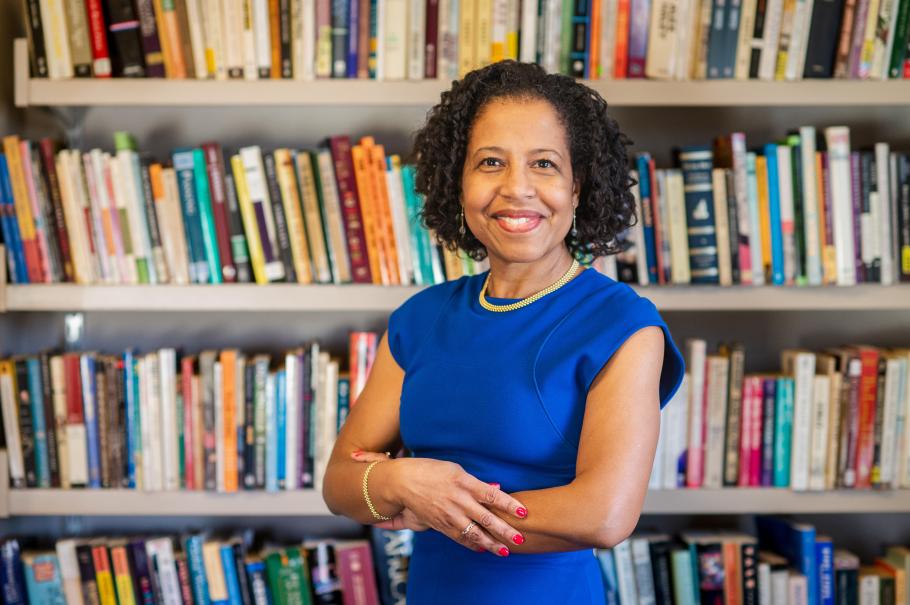
Daphne Lamothe
Smith College Provost and Dean of the Faculty
Daphne Lamothe is Smith’s chief academic officer, responsible for curriculum and for faculty teaching and research support. She plays a pivotal role in achieving Smith’s institutional goals through stewardship of the College’s academic mission. Academic and co-curricular units within the provost’s portfolio include all academic departments as well as the libraries; the museum of art; the botanic garden; Institutional Research; the Office of the Registrar; and the Office for the Arts. Lamothe also chairs the Committee on Academic Priorities and oversees the long-term composition of the faculty. She has been at Smith since 2004 and has served as chair of the Department of Africana Studies, co-chair of the Admission Policy Study Group, and served on the Academic Priorities and Faculty Compensation and Development committees. In 2023, she received the Honored Professor Award for her achievements in teaching and scholarship and her contributions to the academic community. Lamothe holds a bachelor’s degree in English literature from Yale University and a doctorate in English from the University of California, Berkeley.
Keynote Speaker
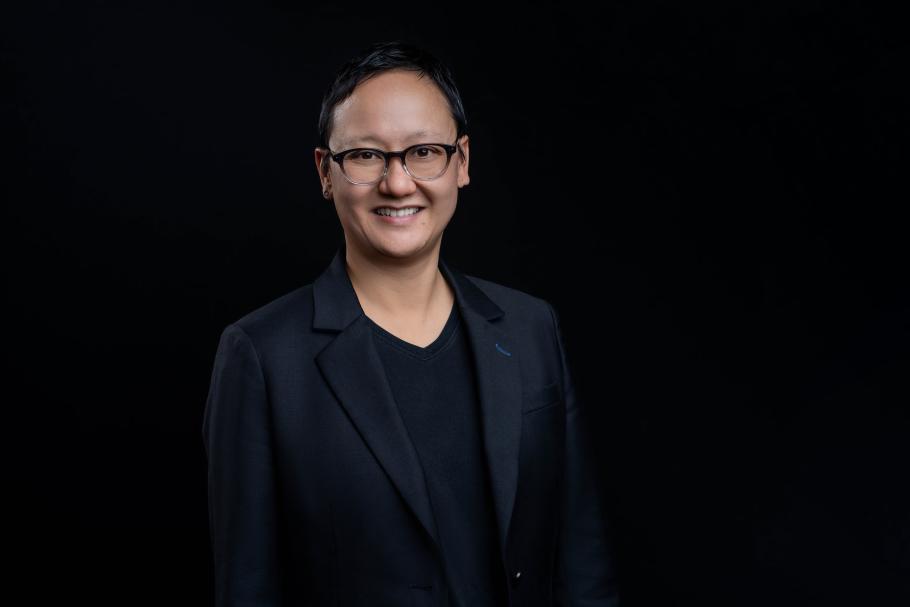
Miriam Yeung
Social Justice Leader
Miriam W. Yeung (she/her) is a social justice leader who has successfully fought for and improved the lives of young people, women, LGBT people, immigrants, and people of color in the United States.
From 2008 – 2016, she led the National Asian Pacific American Women's Forum (NAPAWF), the nation's only national multi-issue organization dedicated to building power and winning reproductive justice, economic justice and immigrant rights for Asian American and Pacific Islander women and girls. During her time at NAPAWF, Miriam became an expert on so-called Prenatal Nondiscrimination laws - racist and sexist anti-abortion laws which target Black and Asian women, and testified in Congress against these measures twice. She also co-founded We Belong Together, a campaign that organizes women for immigrant rights.
Prior to that Miriam spent 10 years at NYC LGBT Community Center doing youth organizing, policy and government relations work where she built the Causes in Common coalition, a crossmovement initiative to more closely align the LGBT liberation movement with the reproductive rights, health and justice movements; developed the NYS and NYC Dignity for All Students laws; supported LGBT inclusion with the foster care system and successfully advocated for the inclusion of LGB youth in statewide data collection efforts.
Miriam received the Ms. Foundation’s Gloria Steinem Woman of Vision award in 2016. Miriam has a MPA from Baruch College and a BA from NYU. Miriam also serves on the board of the the National Asian Pacific American Women’s Forum, MomsRising and GalvanizeUSA.
Raised in the projects of Brooklyn, Miriam Yeung is a proud, queer, immigrant, woman, activist parent to two amazing young daughters.
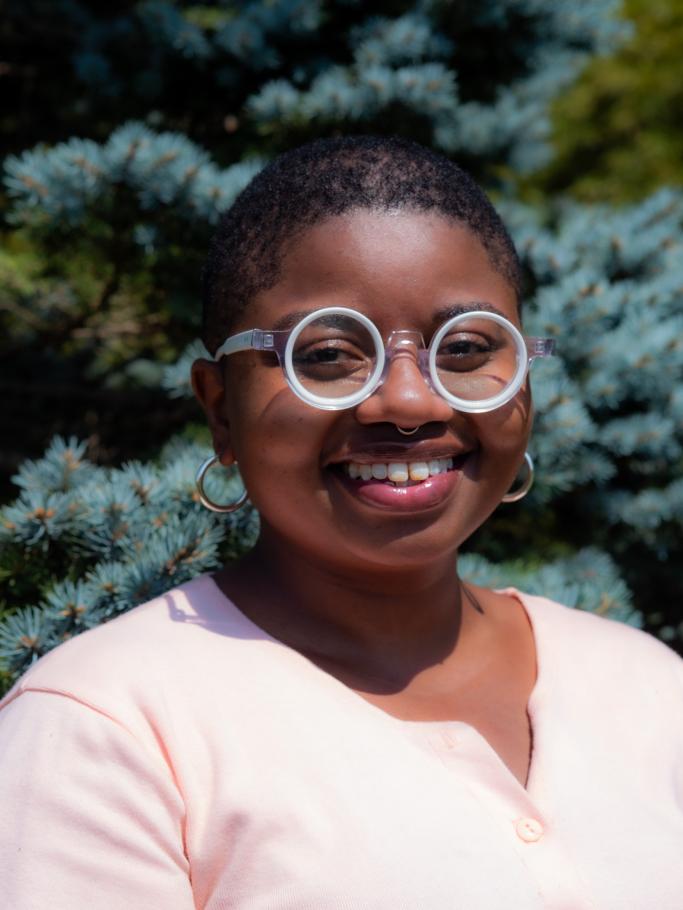
M.S.W. Speaker
Wanja Kuria
Wanja Kuria (they/she) is a proud daughter, sister, immigrant, working-class person, community organizer, scholar, and budding clinician whose work is grounded in justice, healing, and collective care. She began her academic journey at Lee College in Baytown, Texas, where she was an active member of the Honors Program and the Walter Prescott Webb Historical Society. After graduating in 2015 with an associate of arts in literature, she transferred to Bethlehem College and Seminary in Minneapolis, graduating in 2019 with a bachelor of arts in the history of ideas. Following graduation, Kuria spent three years organizing for racial justice, beginning within her faith community and continuing with the Twin Cities Coalition for Justice for Jamar Clark in the wake of George Floyd’s murder. Before attending SSW, she worked as a neighborhood organizer with the Longfellow Community Council, during which time she also completed the Neighborhoods Now organizer training through the University of Minnesota’s Center for Urban and Regional Affairs. Upon graduating with her M.S.W., Kuria will return to Philadelphia to begin a fellowship in college counseling at Swarthmore College. In her free time, she enjoys playing music, reading at Clark Park, training in aikido and other movement practices, learning to sew, and spending time with friends and family.
Ph.D. Speaker
Maria Ximena Maldonado-Morales, M.P.H., Ph.D., LCSW
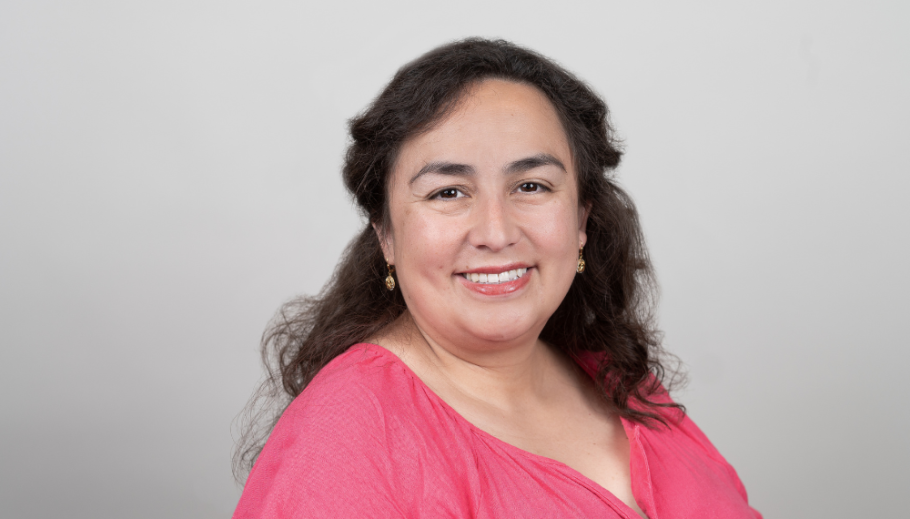
Maria Ximena Maldonado-Morales (she/her/hers) is a multilingual licensed clinical social worker and therapist, with experience working with youth and adults. Maldonado-Morales has experience working with children and youth with trauma and grief, immigrant populations, and women and infants in a perinatal setting. Maldonado-Morales has a Masters in Social Work and in Public Health from Washington University in St. Louis, and is currently completing her doctorate in clinical social work at Smith College School for Social Work. Maldonado-Morales feels quality therapeutic services should be something accessible to everyone. Maldonado-Morales strives to work through lenses of equity and social justice to create a therapeutic environment where people can feel heard, valued and safe.
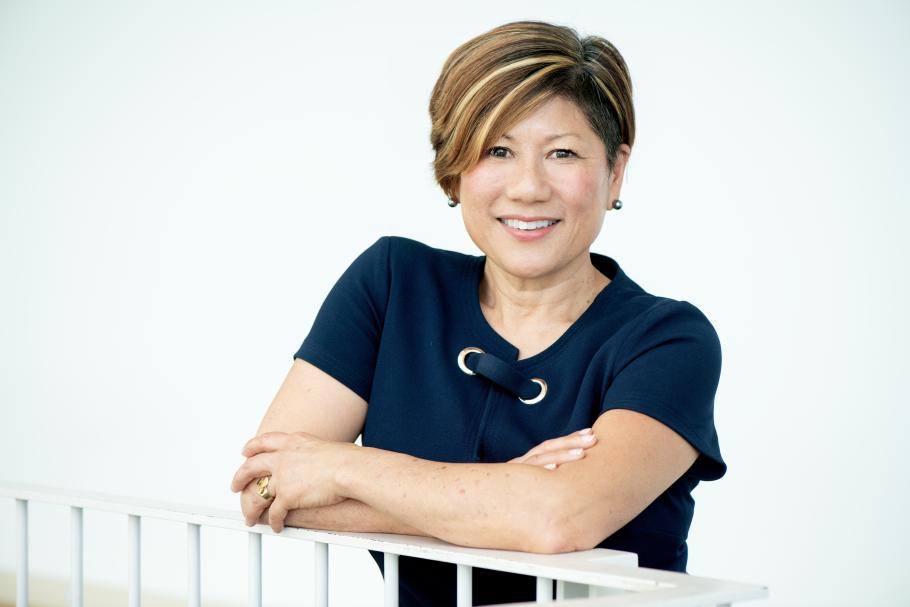
Welcome
Marianne Yoshioka
Dean and Elizabeth Marting Treuhaft Professor
Dean Marianne Yoshioka (she/her) arrived at the Smith College School for Social Work in 2014. Prior to Smith College, Yoshioka spent 18 years on the faculty of the New York City’s Columbia School of Social Work and also served as the school’s Associate Dean of Academic Affairs. Originally trained as a clinical social worker, Yoshioka focused her research on the areas of addiction, family therapy, HIV/AIDS, family violence in Asian communities and the design and development of culturally tailored intervention. She has received related research funding from the National Institute of Mental Health, as well as private foundations and has published her findings extensively in an effort to advance knowledge of and services for underrepresented communities.
Dean Yoshioka has held board positions with National Association of Deans and Directors of Social Work, the NASW, social service organizations and has participated in numerous working groups and think tanks. The strong clinical social work training programs and anti-racism mission of the Smith School for Social Work make Yoshioka an excellent fit for our institution, as her work as a clinician, researcher and administrator demonstrates a similar commitment to anti-oppression and inclusion.
Yoshioka has taught in the areas of clinical practice, advanced research methods, the developmental life course and practice with battered women. She received her Ph.D. from Florida State University’s School of Social Work, her M.S.W. from the University of Michigan and her B.A (honors) from Canada’s University of Western Ontario.

Conferring of Degrees
Sarah Willie-LeBreton
Smith College President
Sarah Willie-LeBreton (she/her) is the 12th president of Smith College. She earned a bachelor of arts degree from Haverford College in 1986, an M.A. (1988) and Ph.D. (1995) from Northwestern University, all in sociology. After having taught at Colby College (1991–1995) and Bard College (1995–1997) in tenure-track appointments, she was tenured at Swarthmore where she served as coordinator of the Black Studies Program and chair of the Department of Sociology and Anthropology for a total of seventeen years. She was appointed as provost and dean of the faculty at Swarthmore in 2018 and served in that role until 2023.
An accomplished administrator, scholar and sociologist who studies social inequality and race and ethnicity, Willie-LeBreton is known for her commitment to the liberal arts, strengthening community and energizing the work of equity and inclusion. She is the author of several dozen articles, essays, reviews and op-ed columns. Her first book, Acting Black: College, Identity and the Performance of Race, examines how the experiences of Black college alumni of a predominantly white institution (PWI) were distinct from those who attended a comparative HBCU from the waning days of the civil rights movement through the county’s political turn to the right under the Reagan presidency. Her second book, Transforming the Academy: Faculty Perspectives on Diversity and Pedagogy, is a collection of essays to which she has contributed and which she edited. It focuses on the challenges faced by faculty who were previously underrepresented on campuses, including people of color, queer people, neurodivergent people and people who immigrated to the U.S. It explores their experiences as they become participants in dominant spaces within the American Academy.
Willie-LeBreton considers herself an applied sociologist, and she has worked with a broad range of groups and organizations to understand social dynamics and develop strategies to move toward organizational self-awareness, transformation, compassion and inclusivity. She is a member of and has been active in the Eastern Sociological Society, Sociologists for Women in Society, the Association of Black Sociologists and the American Sociological Association (ASA). For several years, she reviewed sociology and affiliated departments as a member of the ASA’s Departmental Resources Group. Her board service has included the Executive Office and Budget of the ASA, Pendle Hill Quaker Center, Haverford College, Benchmark School, the Shalem Institute for Spiritual Formation and she sits on the advisory board of IIG (Integrated Impact Group) which offers consulting for the educational sector.

Daphne Lamothe
Smith College Provost and Dean of the Faculty
Daphne Lamothe is Smith’s chief academic officer, responsible for curriculum and for faculty teaching and research support. She plays a pivotal role in achieving Smith’s institutional goals through stewardship of the College’s academic mission. Academic and co-curricular units within the provost’s portfolio include all academic departments as well as the libraries; the museum of art; the botanic garden; Institutional Research; the Office of the Registrar; and the Office for the Arts. Lamothe also chairs the Committee on Academic Priorities and oversees the long-term composition of the faculty. She has been at Smith since 2004 and has served as chair of the Department of Africana Studies, co-chair of the Admission Policy Study Group, and served on the Academic Priorities and Faculty Compensation and Development committees. In 2023, she received the Honored Professor Award for her achievements in teaching and scholarship and her contributions to the academic community. Lamothe holds a bachelor’s degree in English literature from Yale University and a doctorate in English from the University of California, Berkeley.
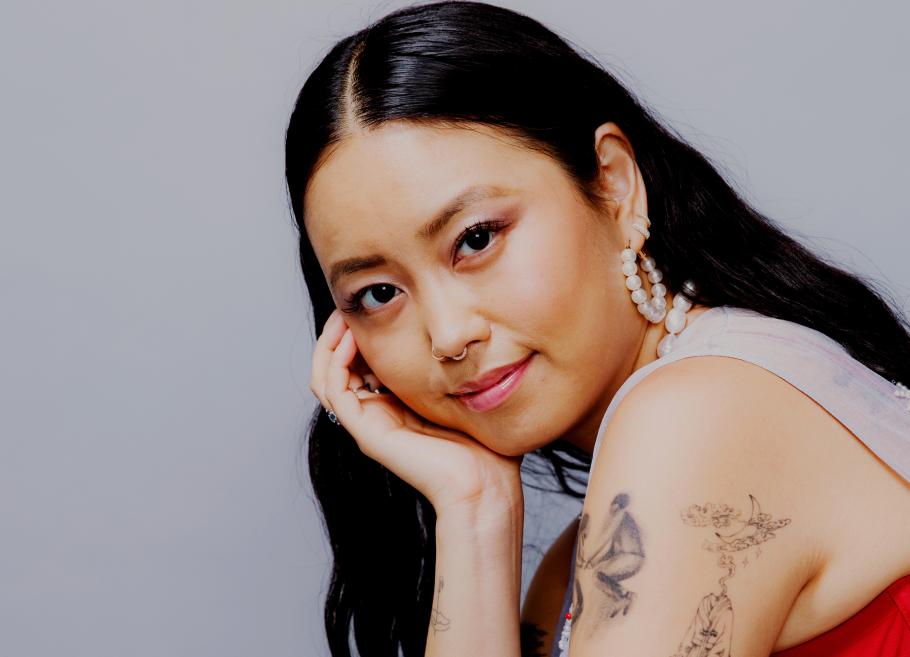
Keynote Speaker: Jezz Chung
Multimodal artist, writer, performer and internationally-recognized public speaker
Jezz Chung (they/them) is a multidisciplinary artist who has spent the past decade studying various justice, healing and creative practices. Their writings, performances and facilitated experiences experiment with the philosophy that personal change contributes to collective transformation. Chung’s Korean, queer, auDHD experiences are embedded into the ways they imagine different futures and they've been recognized internationally by El País, Público, Vogue Italia, The Cut, Time Out, Them and Deem Journal. Their writings have appeared in Washington Post, i-D Mag, Adweek and EST Media, and they've shared lectures and talks with organizations around the world. Chung's ongoing project Dreaming Different archives conversations with cultural workers about how to build a world through a neurodivergent lens and their debut book This Way to Change was released in March 2024. Chung is an alum of experimental theater company New York Neo-Futurists and a member of SAG-AFTRA. They document their journey @jezzchung and jezzchung.substack.com.
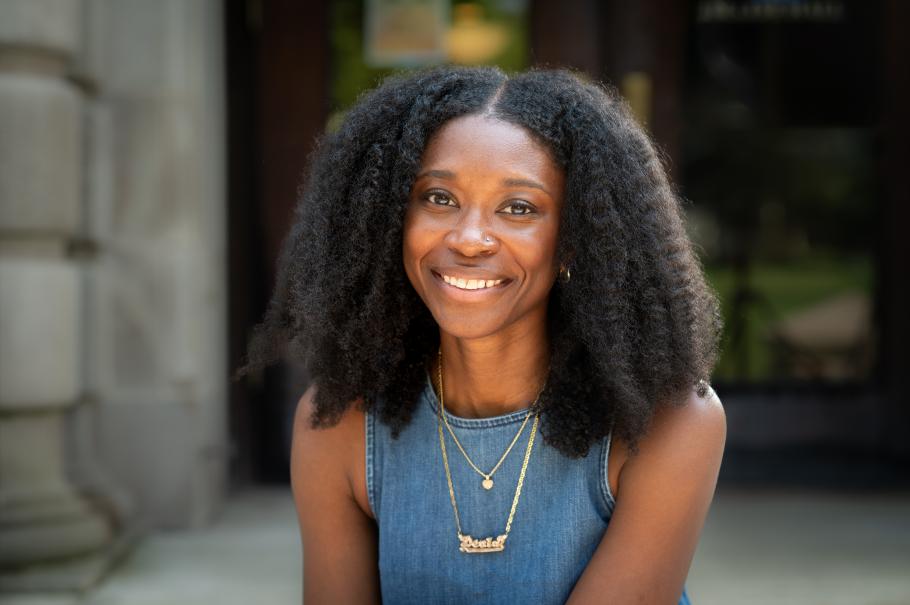
M.S.W. Speaker: Devin Duprey
Devin Duprey (she/her) has dedicated her career and graduate studies to nurturing essential human needs for safety, care and community. A proud native of New York City, her experiences as a daughter, sister, friend, family and community member, in addition to her work in education, school administration, diversity and equity, and with youth and survivors of interpersonal violence, inform her practice and praxis as a social worker.
With an understanding of oppressive systems that exploit and undermine dignity, Devin engages in micro-level practice to serve a mezzo and macro purpose. Guided by a love ethic, she is committed to supporting the creation of environments where knowing and being known, joy and pleasure, and resources for living fulfilled and authentic lives are accessible to all. Devin's work is grounded in relational, experiential, and emotion-focused therapy, as well as liberation health, reproductive justice and Black queer feminism.
After graduation, she will be relocating to Oakland, California where she hopes to pursue clinical interests in trauma therapy, training in Accelerated Experiential Dynamic Psychotherapy and work with socially marginalized youth and survivors of gender-based violence.
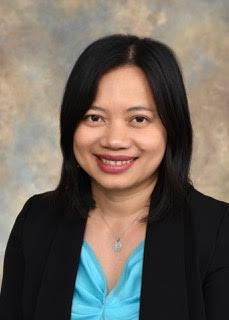
Ph.D. Speaker: Phuongloan (Loan) Vo
Phuongloan (Loan) Vo (she/her) is a clinical social worker whose work include short term and in-depth long term psychosocial therapy for individuals who struggle with anxiety, depression, traumatic experiences, as well as loss and grief and life transitions.
Being a refugee and immigrant to the United States as an adolescent from Vietnam, she understands well the challenges and opportunities that come with new experiences and the need to adapt and live with change. In previous “lifetimes”, she has worked in residential counseling for female adolescents, crisis and suicide hotline and Children’s Services. Her life and work experiences inform her creative and scholarly writings. Current research interests include intersubjectivity and intercultural processes in clinical work, mental health and trauma treatment in minoritized and marginalized people.
She teaches clinical social work at University of Cincinnati School of Social Work and Smith College School for Social Work. She is a recipient of the “Outstanding Adjunct Faculty Award” from the University of Cincinnati in 2023.

Welcome and Conferring of Degrees: Marianne Yoshioka
Dean and Elizabeth Marting Treuhaft Professor
Dean Marianne Yoshioka (she/her) arrived at the Smith College School for Social Work in 2014. Prior to Smith College, Yoshioka spent 18 years on the faculty of the New York City’s Columbia School of Social Work and also served as the school’s Associate Dean of Academic Affairs. Originally trained as a clinical social worker, Yoshioka focused her research on the areas of addiction, family therapy, HIV/AIDS, family violence in Asian communities and the design and development of culturally tailored intervention. She has received related research funding from the National Institute of Mental Health, as well as private foundations and has published her findings extensively in an effort to advance knowledge of and services for underrepresented communities.
Dean Yoshioka has held board positions with National Association of Deans and Directors of Social Work, the NASW, social service organizations and has participated in numerous working groups and think tanks. The strong clinical social work training programs and anti-racism mission of the Smith School for Social Work make Yoshioka an excellent fit for our institution, as her work as a clinician, researcher and administrator demonstrates a similar commitment to anti-oppression and inclusion.
Yoshioka has taught in the areas of clinical practice, advanced research methods, the developmental life course and practice with battered women. She received her Ph.D. from Florida State University’s School of Social Work, her M.S.W. from the University of Michigan and her B.A (honors) from Canada’s University of Western Ontario.

Sarah Willie-LeBreton
Smith College President
Sarah Willie-LeBreton (she/her) is the 12th president of Smith College. She earned a bachelor of arts degree from Haverford College in 1986, an M.A. (1988) and Ph.D. (1995) from Northwestern University, all in sociology. After having taught at Colby College (1991–1995) and Bard College (1995–1997) in tenure-track appointments, she was tenured at Swarthmore where she served as coordinator of the Black Studies Program and chair of the Department of Sociology and Anthropology for a total of seventeen years. She was appointed as provost and dean of the faculty at Swarthmore in 2018 and served in that role until 2023.
An accomplished administrator, scholar and sociologist who studies social inequality and race and ethnicity, Willie-LeBreton is known for her commitment to the liberal arts, strengthening community and energizing the work of equity and inclusion. She is the author of several dozen articles, essays, reviews and op-ed columns. Her first book, Acting Black: College, Identity and the Performance of Race, examines how the experiences of Black college alumni of a predominantly white institution (PWI) were distinct from those who attended a comparative HBCU from the waning days of the civil rights movement through the county’s political turn to the right under the Reagan presidency. Her second book, Transforming the Academy: Faculty Perspectives on Diversity and Pedagogy, is a collection of essays to which she has contributed and which she edited. It focuses on the challenges faced by faculty who were previously underrepresented on campuses, including people of color, queer people, neurodivergent people and people who immigrated to the U.S. It explores their experiences as they become participants in dominant spaces within the American Academy.
Willie-LeBreton considers herself an applied sociologist, and she has worked with a broad range of groups and organizations to understand social dynamics and develop strategies to move toward organizational self-awareness, transformation, compassion and inclusivity. She is a member of and has been active in the Eastern Sociological Society, Sociologists for Women in Society, the Association of Black Sociologists and the American Sociological Association (ASA). For several years, she reviewed sociology and affiliated departments as a member of the ASA’s Departmental Resources Group. Her board service has included the Executive Office and Budget of the ASA, Pendle Hill Quaker Center, Haverford College, Benchmark School, the Shalem Institute for Spiritual Formation and she sits on the advisory board of IIG (Integrated Impact Group) which offers consulting for the educational sector.

Keynote Speaker: Sarah Willie-LeBreton, Smith College President
Sarah Willie-LeBreton is the 12th president of Smith College. She earned a bachelor of arts degree from Haverford College in 1986, an M.A. (1988) and Ph.D. (1995) from Northwestern University, all in sociology. After having taught at Colby College (1991–1995) and Bard College (1995–1997) in tenure-track appointments, she was tenured at Swarthmore where she served as coordinator of the Black Studies Program and chair of the Department of Sociology and Anthropology for a total of seventeen years. She was appointed as provost and dean of the faculty at Swarthmore in 2018 and served in that role until 2023.
An accomplished administrator, scholar and sociologist who studies social inequality and race and ethnicity, Willie-LeBreton is known for her commitment to the liberal arts, strengthening community and energizing the work of equity and inclusion. She is the author of several dozen articles, essays, reviews and op-ed columns. Her first book, Acting Black: College, Identity and the Performance of Race, examines how the experiences of Black college alumni of a predominantly white institution (PWI) were distinct from those who attended a comparative HBCU from the waning days of the civil rights movement through the county’s political turn to the right under the Reagan presidency. Her second book, Transforming the Academy: Faculty Perspectives on Diversity and Pedagogy, is a collection of essays to which she has contributed and which she edited. It focuses on the challenges faced by faculty who were previously underrepresented on campuses, including people of color, queer people, neurodivergent people and people who immigrated to the U.S. It explores their experiences as they become participants in dominant spaces within the American Academy.
Willie-LeBreton considers herself an applied sociologist, and she has worked with a broad range of groups and organizations to understand social dynamics and develop strategies to move toward organizational self-awareness, transformation, compassion and inclusivity. She is a member of and has been active in the Eastern Sociological Society, Sociologists for Women in Society, the Association of Black Sociologists and the American Sociological Association (ASA). For several years, she reviewed sociology and affiliated departments as a member of the ASA’s Departmental Resources Group. Her board service has included the Executive Office and Budget of the ASA, Pendle Hill Quaker Center, Haverford College, Benchmark School, the Shalem Institute for Spiritual Formation and she sits on the advisory board of IIG (Integrated Impact Group) which offers consulting for the educational sector.
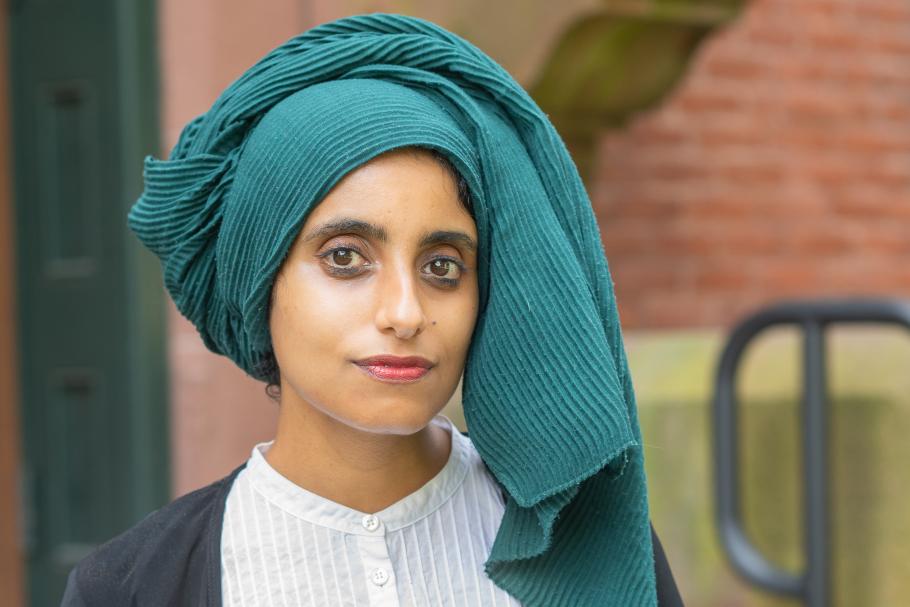
M.S.W. Speaker: Safia Albaiti
Safia Albaiti is a Yemeni Muslim immigrant working class woman. Her interests include psychoanalysis, trauma therapy, liberation psychology, religion and spiritual belonging, policy work around non-carceral socialized access to mental health care, crossing borders in the clinical encounter, speculative futures and the great city of Philadelphia. After graduation, she will be in private practice in New York City, working with children and adults.
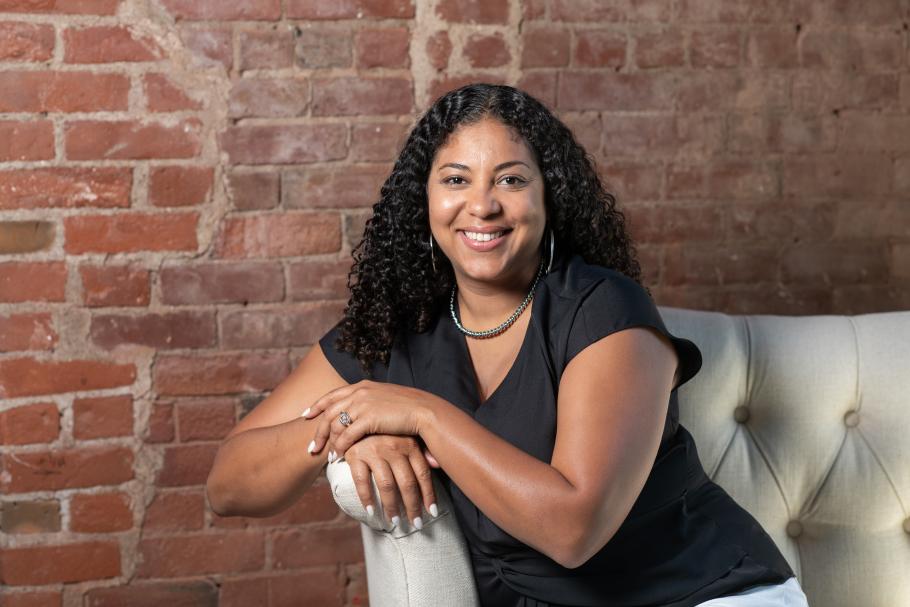
Ph.D. Speaker: Jamie Danielle Daniels
Jamie Daniels, Ph.D. ‘23, LICSW is a proud social worker. She is a trauma-informed psychotherapist, an educator, a researcher and scholar, a political activist/organizer and mother of three. She is currently an at-large candidate for Town Council in Amherst, MA, where she lives and works.
Daniels’ is a leading expert on race and mental health in Western Massachusetts. She has provided outside consultation and training related to inequities in mental health across Western MA. She has been called on to guest lecture at countless universities, and has provided expert commentary on New England Public Radio. Daniels’ has served on a variety of advisory boards and diversity committees. She is a former Marta Sotomayor Fellow at Smith SSW where she provided free and confidential consultation to students and faculty regarding any questions, issues or concerns related to race, racism, or other aspects of social identity and social oppression.
Daniels’ is the owner and director of Polestar Therapy, a private psychotherapy practice, where she primarily treats BIPOC and LGBTQIA patients. She is a relational practitioner whose work is grounded in psychodynamic, political economy, anti-racist and liberatory frameworks. Daniels’ has provided clinical supervision to M.S.W. students, and has a stellar teaching and advising record, having taught a range of contemporary social work practice and theory courses at the master’s level.
Daniels’ scholarly interests include the mental health of Black women and other people of color, the social determinants of mental health, environmental and political forces that shape mental health and collective power building as a strategy for improving mental health. She is deeply attuned to matters of equity and justice. Her personal experiences as a Black woman, teenage parent and first-generation college student informs her work. In teaching, research and in practice, she strives to bring greater awareness to the social and environmental forces that shape or interplay with the psyche.

Welcome and Conferring of Degrees
Marianne Yoshioka
Dean | Elizabeth Marting Treuhaft Professor
Dean Marianne Yoshioka arrived at the Smith College School for Social Work in 2014. Prior to Smith College, Yoshioka spent 18 years on the faculty of the New York City’s Columbia School of Social Work and also served as the school’s Associate Dean of Academic Affairs. Originally trained as a clinical social worker, Yoshioka focused her research on the areas of addiction, family therapy, HIV/AIDS, family violence in Asian communities and the design and development of culturally tailored intervention. She has received related research funding from the National Institute of Mental Health, as well as private foundations and has published her findings extensively in an effort to advance knowledge of and services for underrepresented communities.
Dean Yoshioka has held board positions with National Association of Deans and Directors of Social Work, the NASW, social service organizations and has participated in numerous working groups and think tanks. The strong clinical social work training programs and anti-racism mission of the Smith School for Social Work make Yoshioka an excellent fit for our institution, as her work as a clinician, researcher and administrator demonstrates a similar commitment to anti-oppression and inclusion.
Yoshioka has taught in the areas of clinical practice, advanced research methods, the developmental life course and practice with battered women. She received her Ph.D. from Florida State University’s School of Social Work, her M.S.W. from the University of Michigan and her B.A (honors) from Canada’s University of Western Ontario.
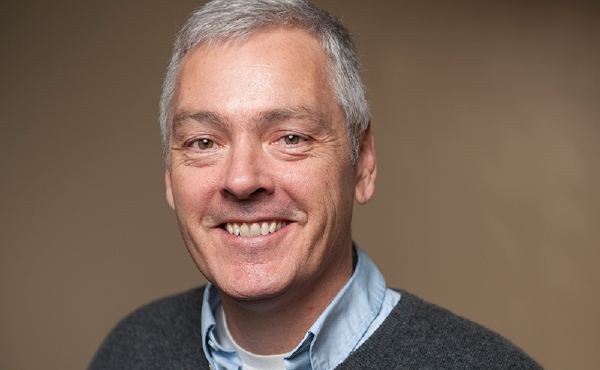
Michael Thurston, Smith College Provost
Michael Thurston is the Helen Means Professor of English Language and Literature. Since his arrival at Smith in 2000, he has taught courses on 20th-century poetry in English, modernism, American literature and American studies. His primary research interest is modern and contemporary poetry, on which he has published three books and numerous articles. In addition, he publishes on the work of Henry David Thoreau and Ernest Hemingway and, with the support of a fellowship from the National Endowment for the Humanities, he is writing a biography of the literary critic and Harvard professor, F.O. Matthiessen. In 2010, he was awarded Smith's Sherrerd Prize for Distinguished Teaching. He has contributed substantially to faculty governance at Smith, serving as chair of Faculty Council and on the Committee on Tenure and Promotion, directing the American Studies Program and chairing the English department. He is currently provost and dean of the faculty.
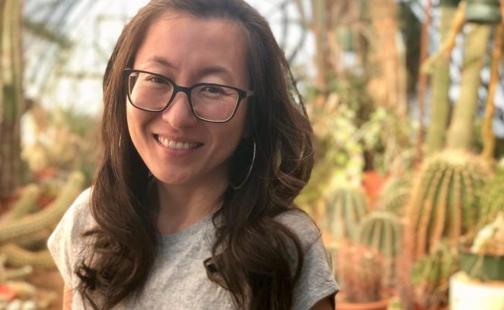
Keynote Address: Mia Mingus
Mia Mingus is a writer, educator and trainer for transformative justice and disability justice. She is a queer physically disabled korean transracial and transnational adoptee raised in the Caribbean. She works for community, interdependence and home for all of us, not just some of us, and longs for a world where disabled children can live free of violence, with dignity and love. As her work for liberation evolves and deepens, her roots remain firmly planted in ending sexual violence.
Mingus founded and currently leads SOIL: A Transformative Justice Project. She has been involved in transformative justice work for almost 2 decades and has supported numerous individuals and communities in addressing harm, violence and abuse using transformative justice. She is an abolitionist and a survivor who believes that we must move beyond punishment to break generational cycles of violence and she speaks and gives trainings about transformative justice throughout North America.
Mingus helped create both the Atlanta Transformative Justice Collaborative and the Bay Area Transformative Justice Collective. She was also part of creating and forwarding the disability justice framework.
Her writings on disability have been used around the world and are a regular part of college and university curricula. Her blog, Leaving Evidence, has become a staple resource for anyone wanting to learn about disability and she has coined language and concepts such as “access intimacy,” “magnificence,” “politically and descriptively disabled” and “forced intimacy.” Mingus has played a key role in connecting disability justice with other movements and communities and she has worked tirelessly to educate different communities about disability, ableism, access, disability justice and abled supremacy.
In 2013, along with 14 other activists, Mingus was recognized by the White House as an Asian and Pacific Islander women’s Champion of Change in observance of Asian and Pacific Islander Heritage Month. Mingus has received numerous other awards including the 2008 Creating Change Award by the National Gay and Lesbian Task Force. Mingus has spoken at countless campuses, conferences and events and her writings can be found on her blog, Leaving Evidence, and have been widely published.

Michael Thurston
Smith College Provost
Michael Thurston is the Helen Means Professor of English Language and Literature. Since his arrival at Smith in 2000, he has taught courses on 20th-century poetry in English, modernism, American literature and American studies. His primary research interest is modern and contemporary poetry, on which he has published three books and numerous articles. In addition, he publishes on the work of Henry David Thoreau and Ernest Hemingway and, with the support of a fellowship from the National Endowment for the Humanities, he is writing a biography of the literary critic and Harvard professor, F.O. Matthiessen. In 2010, he was awarded Smith's Sherrerd Prize for Distinguished Teaching. He has contributed substantially to faculty governance at Smith, serving as chair of Faculty Council and on the Committee on Tenure and Promotion, directing the American Studies Program and chairing the English department. He is currently provost and dean of the faculty.

Marianne Yoshioka
Dean and Elizabeth Marting Treuhaft Professor
Dean Marianne Yoshioka arrived at the Smith College School for Social Work in 2014. Prior to Smith College, Yoshioka spent 18 years on the faculty of the New York City’s Columbia School of Social Work and also served as the school’s Associate Dean of Academic Affairs. Originally trained as a clinical social worker, Yoshioka focused her research on the areas of addiction, family therapy, HIV/AIDS, family violence in Asian communities and the design and development of culturally tailored intervention. She has received related research funding from the National Institute of Mental Health, as well as private foundations and has published her findings extensively in an effort to advance knowledge of and services for underrepresented communities.
Dean Yoshioka has held board positions with National Association of Deans and Directors of Social Work, the NASW, social service organizations and has participated in numerous working groups and think tanks. The strong clinical social work training programs and anti-racism mission of the Smith School for Social Work make Yoshioka an excellent fit for our institution, as her work as a clinician, researcher and administrator demonstrates a similar commitment to anti-oppression and inclusion.
Yoshioka has taught in the areas of clinical practice, advanced research methods, the developmental life course and practice with battered women. She received her Ph.D. from Florida State University’s School of Social Work, her M.S.W. from the University of Michigan and her B.A (honors) from Canada’s University of Western Ontario.
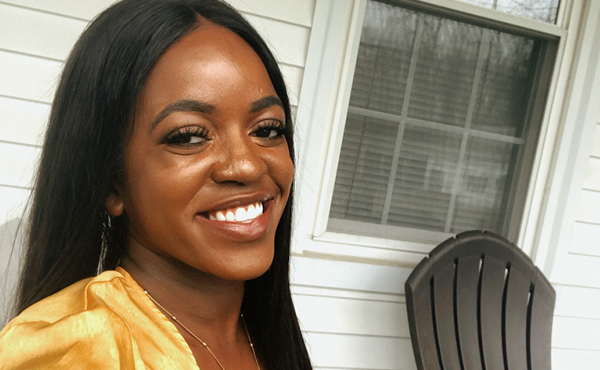
Beth Nanjala Luvisia
M.S.W. Speaker
Beth Nanjala Luvisia was born and raised in Matete, Kenya. Upon migrating to the United States at the age of 12, Luvisia lived in Minneapolis, Minnesota. Prior to Smith College, Luvisia was a community youth organizer in Minneapolis. In this community, Luvisia worked alongside Minneapolis Public School principals to address the factors that impacted an increase in suspension rates among minority students. She also facilitated forums to increase awareness of biased departmental policy leading to increased incarceration rates among historically marginalized youth of Minneapolis. These experiences naturally led Luvisia to choose social work as a profession due to its social justice focus.
Luvisia intentionally chose Smith College because of its flexible internship opportunities and anti-racism commitment. “I wanted the chance to engage and learn about other communities and be part of a school that prioritizes the dismantling of oppressive systems.” Being a student at Smith College enabled Luvisia to be a critical thinker, become comfortable with the uncomfortable, have the courage to voice her opinions and create space for accountability. “Through intersectional theory, Smith challenged me to analyze my positionality and identities that I may share with clients and how this can influence my clinical practice.”
Upon receiving her diploma, Luvisia plans to study for the ASWB exam and relocate to Houston, a city in which she hopes to pursue her clinical interests in the relational and multi-contextual treatment of trauma among Africans in the diaspora using a healing-centered and joy-centered approach.
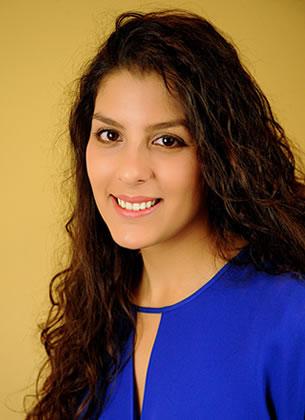
Georgette Saad
Ph.D. Class Speaker
Georgette Saad, Ph.D. '20, LICSW, has provided psychotherapy in a community health center in Washington, DC for the last 10 years. Saad created and manages the Infant and Early Childhood Program at her community mental health agency in Washington, DC and offers consultation to other emerging programs in the District. She describes herself as a relational practitioner and primarily serves young children and families, both in English and Spanish. Saad is certified in several dyadic evidence-based practices and trains new providers in several approaches including Parent-Child Interaction Therapy. She also facilitates consultation and supervision with a focus on multicultural interactions and parent coaching.
Saad has been invited to present at conferences on both the local and national levels and has trained clinicians across the country in evidence-based practices such as Parent-Child Interaction Therapy (PCIT). She has been awarded several grants to support families in Washington DC and received the Clinical Service and Advocacy Award in 2019. Saad has taught at both at Catholic University and Smith College in the Masters Social Work Programs.
Saad receive her M.S.W. from the University of Maryland , Baltimore (2012) where she specialized in Maternal and Child Health. She received her B.S.W. from New York University (2009) where she also majored in Political Science and received a minor in Journalism.
